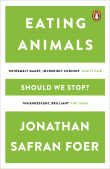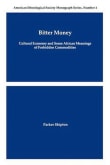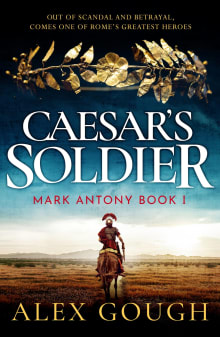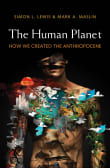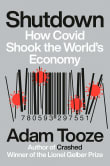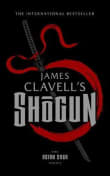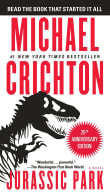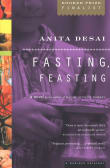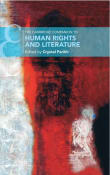Things Fall Apart
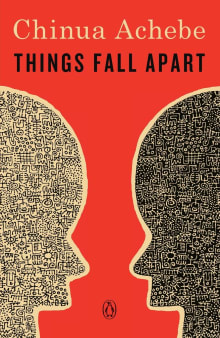
Book description
Winner of International Man Booker Prize 2007.
Why read it?
8 authors picked Things Fall Apart as one of their favorite books. Why do they recommend it?

The idea to adapt Conrad’s Heart of Darkness came from my teaching of modern world history every semester. Later in that course, I would have students read Achebe’s novel as a foil or answer to Heart of Darkness. The Congolese in Heart are barely people: they have no names, and they are only really described by parts of their bodies.
This book presents the West African world–the communities, the customs, the emotions, the families–that colonialism destroys. While it is easy to be swept away by the story’s momentum in the last two dozen pages, take some time early in…
From Robert's list on the intersection of fiction and history.

Things Fall Apart by Chinua Achebe is an exploration of Igbo culture and mythology, two elements that resonate with my love of both fantasy and historical narratives. As a Nigerian woman living in the United States, I find Achebe's portrayal of pre-colonial Nigeria both familiar and enlightening.
The novel's rich storytelling brings to life the traditions, superstitious beliefs, and social structures of the Igbo people, creating a narrative that is both timeless and thoroughly rooted in my historical reality.
Achebe's nuanced depiction of the clash between the indigenous culture and British colonialism offers a compelling exploration of identity, resilience, and…
From J.S.'s list on a vividly accurate picture of the rich culture and history of Nigerian Peoples.

This was one of the first novels I read in the late sixties as I began reading African writers and studying the novel form and possibilities. Chinua Achebe tells the story of Okonkwo, a warrior in the late 1800s as he tries to resist the British political and religious powers encroaching on his home. Okonkwo is in conflict with his community as they allow the intrusion and succumb to the British.
Through his proverbs, rhythmic prose, and poignant storytelling, Chinua Achebe brings to life this story without polemics and the drier narrative of history books but instead through the passion…
From Joanne's list on books combining international political intrigue, romance, and family drama.
If you love Things Fall Apart...

I love reading and teaching this classic of postcolonial literature. Written in spare, accessible style on the eve of Nigerian independence from Britain, Achebe tells the story of British colonization of an Igbo clan in Southeast Nigeria near the end of the 19th century. Even as the novel portrays the appalling damages of European colonialism, it subtly critiques the traditional Igbo exclusion of disabled people. It demonstrates one of the paradoxes of human rights: victims of human rights abuses can also be perpetrators of them. The British missionaries first gain a foothold by welcoming those stigmatized people marginalized by…
From Christopher's list on disability human rights in the Global South.

This novel is such a fertile work of art, that shows the universal nature of humanity. The author takes us into Nigeria, during the colonization by the British Empire and the fight by the protagonists to keep traditional customs with the changing landscapes. I loved the sophistication with which Chinua Achebe took us into colonial Africa and made us become one with the weight of the traditions of that time.
From Njedeh's list on original stories that make you think.

I’ve always read this book as being a lesson from our past and present, and a warning from the future. We simply cannot separate the intertwined histories of imperialism, capitalism, and growing environmental crisis. The experience of pre-colonial life in Nigeria and the searing effects of the arrival of British imperialism and capitalism bring to life the resultant, shattering experience of people and places. The dislocation, the chaos, the disenfranchisement, and exploitation: all these are the lived reality of so many across the world to this day, particularly those on the frontline of worsening environmental impacts. These people are predominantly…
From Laurie's list on to help us face up to the environmental crisis.
If you love Chinua Achebe...

A fictional account of pre-colonial Igbo society in southern Nigeria prior to European colonization. This was a highly democratic society where status was based on achievement and economic success. Debunks one of the most bizarre Eurocentric notions that western societies are “complex” while African societies are “simple”. There was (and is) nothing simple about Igbo society!
From James' list on Africa.

This book is a profound description of the customs and life of the Igbo tribe of Nigeria before the political and religious changes brought by the British. Through Achebe’s work we see the philosophy, poetry, and even democratic practice of the Igbo—a salutary counter to assumptions that western culture is automatically superior. Are the Igbo “primitive”? What does this word mean? Maybe it seems strange to worship wooden idols, but to the Igbos it seems strange to say that God has a son when he has no wife. I found the Igbo’s meaning-making practices as profound as any.
From Shadi's list on the meaning of life and the books that helped me find mine.
If you love Things Fall Apart...
Want books like Things Fall Apart?
Our community of 12,000+ authors has personally recommended 100 books like Things Fall Apart.




